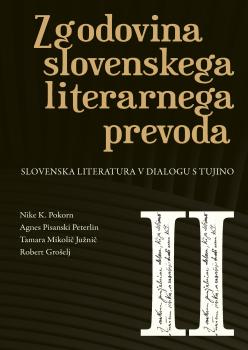Paul Celan v svetovni literaturi in slovenskem prevodu
Synopsis
This chapter first introduces the German-Jewish poet Paul Celan as a modern canonical author. In his poetry, Celan thematized the central event of the 20th century, the Second World War, or rather the traumatic core of this event, the Nazi genocide of the Jews. After “what had happened”, as he laconically labelled the Holocaust, the only thing that was left to him was the language. The language of Celan’s poetry remained German, his mother tongue, even though German was also the language of his mother’s killers. He foreignized this language, making it dark and needing translation even for his German readers. He also foreignized the language of his translations. He translated poems of over forty poets from seven different languages. These translations, which contributed to his status of a canonical contemporary translator, comprise the last two of the five volumes of his collected works. The chapter then outlines the dynamics of translating Celan’s work into Slovene, which follows the same trajectory as elsewhere: the first translations of selected poems appeared in literary journals during Celan’s lifetime. After his death, a selection from his entire poetic oeuvre was made and, ultimately, the integral translation. Since creating new words is typical of Celan’s foreignization of the language, the chapter ends with an analysis of the translations of one of his neologisms by three Slovene translators.


